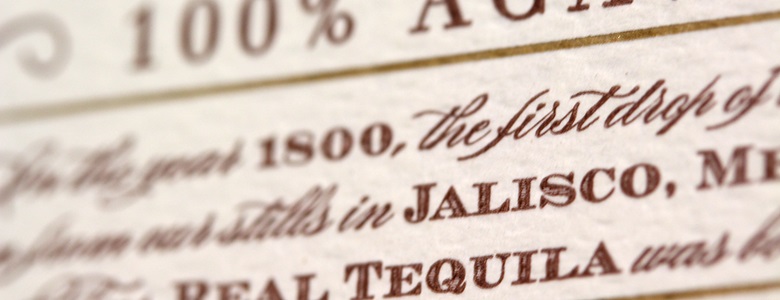
Tequila is distilled from the juice of the blue agave plant. A geographically protected spirit, tequila can only come from the state of Jalisco or other specially designated areas in Mexico. Like cognac or brandy, tequila is aged and is available in a range of types. Tequilas can be paired with citrus juices and also serve as the basis for essential cocktails, such as the Margarita and the Paloma. Premium tequilas are best consumed neat.
Know the Label
These terms commonly appear on tequila labels. For more information, please ask the staff at your Virginia ABC store.
Silver
Plata
White
Agave azul
Estate bottled
Hecho en Mexico
Gold
Cocktail Conversation
The flowers of the blue agave plant are pollinated by the Mexican long-nosed bat (Leptonycteris nivalis). Agave sap is derived from the heart (piña) of the plant; fermented, it becomes a milky drink, known as "pulque," and was enjoyed by the Aztecs.
The traditional way to enjoy straight tequila is to partner the shot with a shot of sangrita, a nonalcoholic drink that clears the palate between sips and complements the agave flavors. There are two basic sangrita variations: The first uses 3 parts tomato juice, 1–3 parts orange juice, 1 part lime juice. The second uses 1 part grenadine, 2 parts orange juice, and 1–2 parts lime juice. For either recipe, chill the sangrita and add a few splashes of hot sauce or a sprinkle of cayenne pepper to taste.

Spirited Virginia is your guide to new products, creative cocktails, in-store tastings, promotions and what's hot in the world of spirits and entertaining (21 or older).
Social Media
Follow Spirited Virginia on Facebook.
Quarterly Magazine

Read it online or pick up a free copy at your local Virginia ABC store. View all issues.
e-Newsletter
Sign up for the Spirited Virginia e-newsletter to stay informed about the latest news about products.
Sip Responsibly
Virginia ABC empowers its customers to make mindful choices about alcohol. Browse our Sip Responsibly section for information and resources to keep Virginians safe and healthy.


